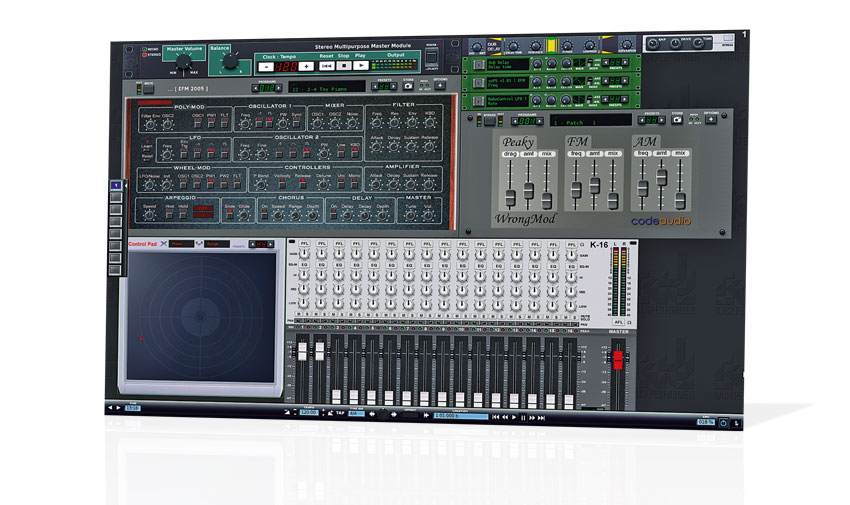MusicRadar Verdict
Very capable for live performance and sound design applications, with a decent collection of built-in processors.
Pros
- +
Easy and intuitive. Very flexible. Monitoring at every point. Recording at every point. Perform mode for live stability.
Cons
- -
Could use more generators.
MusicRadar's got your back
Even the lowest-end DAW these days is a powerhouse of features and functionality, but not every musical situation demands such a comprehensive solution; in fact, it can even get in the way. For example, live musicians often require nothing more than a virtual rack with the ability to run instruments and effects, and enough routing flexibility to cater for any monitoring eventuality. It's clear that Abeem Live Technologies were thinking along these lines when they came up with Rack Performer.
"Once you've made something you like, you can tab over to the Edit screen, which makes each device's GUI available for real-time tweaking"
Rack Performer is a modular instrument and effects hosting environment for Windows. It comprises two main screens, the first for patching up complex combinations of VST plugins, along with Rack Performer's own collection of signal generators, processors, mixers and modulators. Once you've made something you like, you can tab over to the Edit screen, which makes each device's GUI available for real-time tweaking, and everything you do can be saved as a snapshot for instant recall.
The Patch view will be familiar to anyone who's ever used a modular soft synth of any sort. It's a "top level" playground, wherein any number of devices can be added and wired together with virtual cables, including splits and layers for running multiple instruments simultaneously. Multiple I/O configurations are catered for - mono, stereo and surround.
Devices that offer multiple inputs and/or outputs can have ports added at the click of a mouse, although certain devices - including the built-in modulators - have to have their routing set up in the Edit window.
The built-in devices are categorised (and sub-categorised) and include Generators (test signals, noise, one-shot sample player), EQs and filters, overdrives and waveshapers, mixers, utilities, routers, analysers and many more. There are a total of 118 in all (plus your own VST plugins collection, of course).
Rack 'em up
Building a Rack Performer patch is only half the fun - tweaking it in the Edit screen is the other half. Here, your devices' GUIs can be viewed and arranged and their parameters edited. You can perform further routing, too, including selecting targets for the modulators you installed in Patch mode.
You can also save and load FXB and FXP files, select MIDI channels and map parameters to MIDI controllers via MIDI learn. Virtual screens are available for configuring multiple screenset views, too, selectable with function keys.
Want all the hottest music and gear news, reviews, deals, features and more, direct to your inbox? Sign up here.
Impressively, Rack Performer is capable of recording and monitoring the signal at any point in the chain. The former makes Rack Performer a powerful sound-design proposition, while the latter could find favour with live musicians. Speaking of which, there's an additional Perform mode that locks your patch down and prevents you from making changes to it accidentally, which would obviously be disastrous on stage.
Rack Performer is surprisingly easy to use and offers plenty of potential. It seems stable too: during our testing, we had just one hiccup in Patch mode that required a relaunch; while Edit and Perform modes were rock solid - which, of course, they absolutely need to be.
So, is Rack Performer worth the considerable outlay? Yes, it works very well indeed and would make a solid gigging companion, although competition in this area is pretty stiff.
Computer Music magazine is the world’s best selling publication dedicated solely to making great music with your Mac or PC computer. Each issue it brings its lucky readers the best in cutting-edge tutorials, need-to-know, expert software reviews and even all the tools you actually need to make great music today, courtesy of our legendary CM Plugin Suite.

